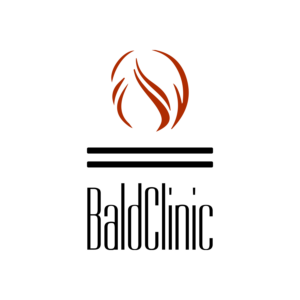
- Automotive, Beauty, Blogs, Business, E-commerce, Education, Entertainment, Finance, Food, Health, Home, Lifestyle, Non-profit, Parenting, Real Estate, Services, Sports, Technology, Travel, Wedding
- 25 Apr 2023
- user
Exploring the Role of Keyword-Rich Domain Names in SEO and How They Can Impact Search Engine Ranking and Organic Traffic
In the world of Search Engine Optimization (SEO), every detail matters. From the quality of your content to the structure of your website, various factors can affect your website’s performance on search engine results pages (SERPs). One such factor that has been a subject of much debate and discussion is the role of domain name keywords in SEO. In this article, we will delve into the importance of domain name keywords and how they can impact search engine ranking and organic traffic to your website.
Understanding Different Types of Domain Extensions:
Domain extensions can be broadly categorized into several types, each with its own characteristics and purposes. Let’s take a closer look at some of the most common types of domain extensions:
What are Domain Name Keywords?
Domain name keywords are the words or phrases that are included in a website’s URL or domain name. For example, if your website is about pet care, a domain name with keywords could be “petcarepro.com” or “bestpetcaretips.com.” These keywords are relevant to the topic or theme of the website and are strategically chosen to reflect the content or purpose of the website.
The Role of Domain Name Keywords in SEO
Domain name keywords have been a topic of debate among SEO experts. Some believe that including keywords in your domain name can significantly impact your website’s SEO, while others argue that it has little to no effect. However, research and industry experience suggest that domain name keywords can indeed play a role in SEO and impact search engine ranking and organic traffic in several ways.
Improved Relevance: A domain name with relevant keywords can help convey the purpose or theme of your website to both search engines and users. When users see a domain name that includes keywords related to their search query, they are more likely to click on it, as it appears relevant and trustworthy. This can lead to higher click-through rates (CTR) and improved user engagement, which are important ranking factors for search engines.
Example: If a user searches for “best pet care tips” and comes across a website with a domain name “bestpetcaretips.com,” they are more likely to click on it as it appears to be relevant to their search query.
Better Branding
A domain name with relevant keywords can also help with branding. It can create a memorable and descriptive brand identity that aligns with your website’s content and purpose. When users see your domain name in search results or share it with others, it can create brand recognition and recall, which can lead to increased brand awareness and visibility in the long run.
Example: If your website is about healthy cooking and your domain name is “healthyeatingrecipes.com,” it creates a clear brand identity that reflects the content of your website and can help users remember your website when looking for healthy eating recipes.
Keyword-rich Anchor Text
Another way domain name keywords can impact SEO is through anchor text. Anchor text is the clickable text in a hyperlink that users click on to navigate to another webpage. When other websites link to your website using your domain name as the anchor text, it creates a keyword-rich link that can improve the relevance and ranking of your website for those keywords.
Example: If a popular food blog links to your website with the anchor text “best healthy eating recipes” and your domain name is “healthyeatingrecipes.com,” it creates a keyword-rich anchor text that can boost your website’s relevance and ranking for the keyword “healthy eating recipes.”
Increased Domain Authority
Domain authority is a measure of a website’s credibility and trustworthiness in the eyes of search engines. It is influenced by various factors, including the relevance and quality of the content, user engagement, and the number and quality of inbound links. A domain name with relevant keywords can help improve the domain authority of your website, as it can signal to search engines that your website is relevant and trustworthy for those keywords
Example: If your website’s domain name is “bestgardeningtips.com” and your website provides high-quality gardening tips and advice, it aligns with the keywords in your domain name. This can result in other reputable websites linking to your website using your domain name as the anchor text, which can help improve your website’s domain authority for gardening-related keywords.
Competitive Advantage
In a competitive online landscape, having a domain name with relevant keywords can give you a competitive advantage. It can help you stand out from the competition and establish yourself as a relevant and authoritative source for the keywords in your domain name. This can lead to higher visibility, increased organic traffic, and potential business opportunities.
Example: If you have a domain name like “bestdigitalmarketingagency.com” for your digital marketing agency, it can help you differentiate yourself from other generic agency names and highlight your expertise in digital marketing. Users searching for digital marketing services may find your website more relevant and trustworthy due to the keyword-rich domain name, giving you a competitive edge.
While domain name keywords are not a guaranteed SEO strategy, they can play a role in improving search engine ranking and organic traffic to your website. A domain name with relevant keywords can improve the relevance and user engagement of your website, create a memorable brand identity, generate keyword-rich anchor text from inbound links, increase domain authority, and provide a competitive advantage. However, it's important to note that domain name keywords are just one piece of the SEO puzzle, and other factors such as high-quality content, user experience, and technical SEO also play a crucial role in overall website performance. When choosing a domain name, it's important to strike a balance between including relevant keywords and creating a brandable and memorable domain name. Avoid keyword stuffing, which can look spammy and negatively impact your SEO. Conduct keyword research to identify relevant keywords that align with your website's content and purpose, and consider how they can positively impact your SEO efforts. In conclusion, domain name keywords can be an important element of your SEO strategy, but they should be used strategically and in conjunction with other SEO best practices. A well-thought-out domain name that includes relevant keywords can help improve your website's search engine ranking, drive organic traffic, and give you a competitive advantage in the online landscape.
Post Views: 121



















